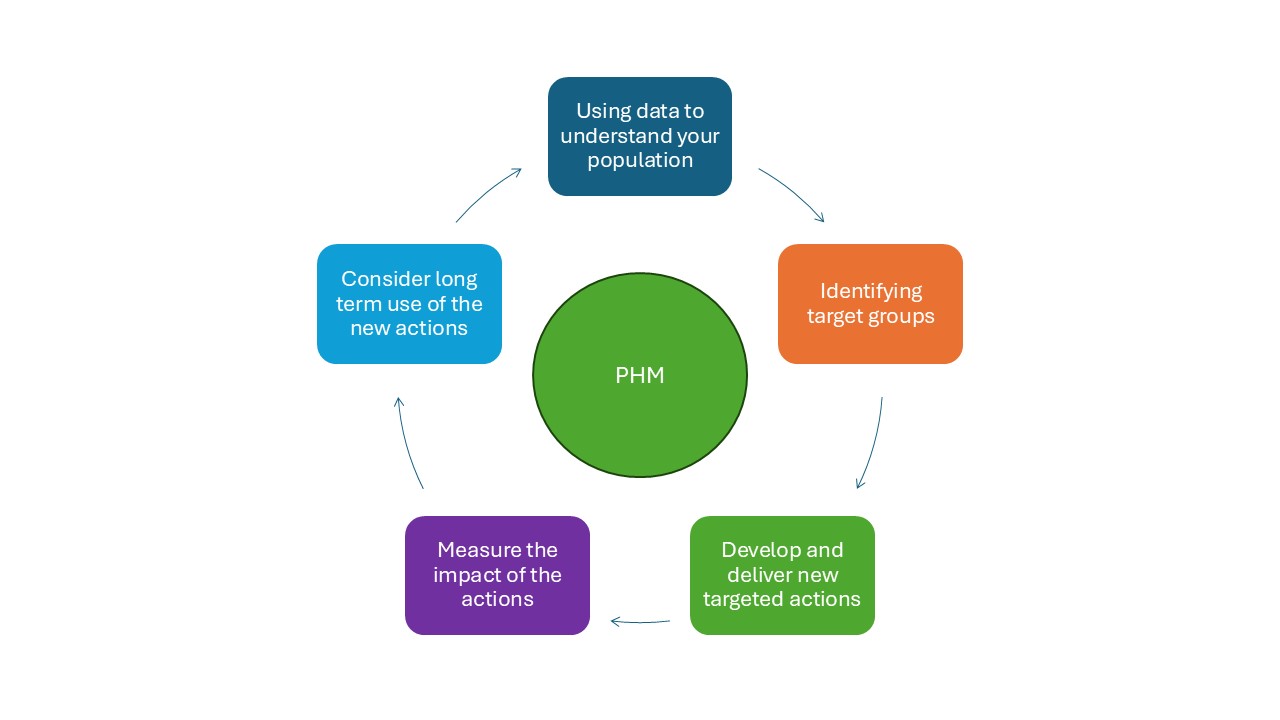People’s health is changing, and care needs are evolving. Our lifestyles are crucial to our long-term health and the health inequality gap is getting bigger. We all need to be more proactive in responding to that change. Population health management (PHM) is key to making it happen sooner. It actively helps to reduce health inequalities and offers proactive, personalised, and preventative healthcare for every community.
Below is our PHM cycle, made up of five key elements.


- To explore PHM case studies collected for Gloucestershire so far, click here.
- To view our local PHM offer for Gloucestershire, click here.
- For national guidance on PHM, click here.
